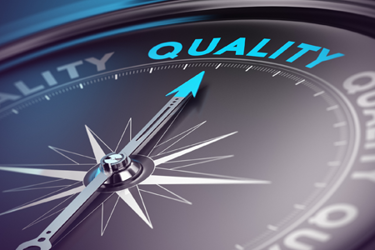Embracing Turnkey And Outsourced Quality Management In Biopharma
By Scott Myers and Charlotte Hoffman, Tunnell Consulting

Biopharmaceutical companies are under constant pressure to meet stringent regulatory standards and deliver safe, effective products to the market quickly. In-house quality management systems (QMS) often struggle to keep pace with evolving regulations, limited resources, and the increasing complexity of the industry. To overcome these challenges, many organizations are adopting turnkey and outsourced quality management solutions to ensure compliance, enhance efficiency, and address these issues effectively.
Challenges With In-House Quality Management Systems
Relying solely on in-house quality management systems presents several challenges for biopharmaceutical companies, especially at the early stages. First, the development of a quality management system requires significant time and expertise to create a system that is both fit for the organization’s current stage while being flexible enough to scale without requiring major overhauls. It also requires ensuring the system matures alongside the organization while maintaining compliance and avoiding unnecessary complexity. For example, an organization may initially build a paper-based system, but, as it grows, it finds that transitioning to an electronic system is essential for maintaining compliance and an efficient operation. Often, rewriting many SOPs, updating forms and templates, and redesigning batch records are required, in addition to ensuring the new electronic system aligns with regulatory expectations.
Once established, maintaining an effective QMS demands substantial resources, including skilled personnel, continuous training, and advanced technology. Smaller companies or those with limited budgets may struggle to meet these needs, leading to gaps in quality and potential risk to product safety and quality culture.
Additionally, the complexity of global regulations continues to grow. Biopharmaceutical companies must stay on top of frequent changes in regulatory requirements from agencies like the FDA and EMA. This can overwhelm internal teams, leading to compliance risks or delays in getting products to the market. Furthermore, technology is advancing rapidly, and maintaining up-to-date, scalable systems can be a significant drain on resources. This is especially true for companies as clinical programs progress through the stages and into commercialization.
Advantages Of Turnkey Quality Management Systems
Turnkey solutions offer a comprehensive, ready-to-use approach to quality management. These solutions, whether an electronic quality system (eQMS) and/or Quality as a Service (QaaS), have several key advantages over traditional in-house developed systems or ad-hoc approaches. Quality as a Service is a flexible outsourcing model that allows organizations to selectively outsource specific quality functions — such as audits, eQMS maintenance, documentation updates, deviation management, and supplier oversight — while retaining control over critical internal quality processes.
- Preconfigured, Ready-to-Implement Systems: A turnkey QMS provides an integrated system that’s already validated and compliant with regulatory standards. This eliminates the time and costs associated with building a system from scratch, helping companies avoid costly delays and potential compliance issues.
- Access to Specialized Expertise: Quality experts bring specialized knowledge and industry-specific experience. They stay up to date with the latest regulatory changes and best practices, ensuring that the QMS remains compliant as regulations evolve.
- Cost-Effective: Instead of maintaining an internal quality team and technology infrastructure, companies can use a hybrid approach and pay only for the services they need. This can be especially beneficial for smaller companies, as it allows them to access the multiple levels of expertise without the overhead costs of building their own department or managing multiple consultants.
- Scalability and Flexibility: This solution is designed to align with the company’s current stage in its life cycle, ensuring that the system remains appropriately scaled — neither overly complex for a developing organization nor inadequate for a larger, later-phase company. As production increases or product lines expand, the system can easily adapt to accommodate new needs, ensuring that the company maintains compliance and operational efficiency.
The Case For Outsourced Quality Management As A Service (QaaS)
Outsourcing specific aspects of quality management is an effective way for biopharmaceutical companies to streamline their operations while maintaining high standards. By approaching quality management from the perspective of QaaS, companies can ensure the right resources are available for critical tasks such as regulatory compliance, corrective and preventive action (CAPA), supplier quality management, and audit preparation. This allows internal teams to focus on core business objectives while ensuring that quality management is handled by experts. Many organizations struggle to balance continuous improvement initiatives as they are often focused on the current demands of day-to-day quality operations. Managing ongoing regulatory updates, quality system enhancements, and process optimizations can be overwhelming for internal teams already stretched thin by routine tasks like batch record review, audits, deviations, and investigations.
Outsourcing also helps mitigate compliance risks. QaaS partners are typically experts in regulatory requirements and can ensure that a company’s quality systems are always aligned with the current trends in GMP compliance. Additionally, these experts will have a broad range of experiences and are able to apply these learnings to the company. This reduces the chance of noncompliance, delays, and the cost of creating systems in a catch-up manner.
Moreover, outsourcing offers flexibility. Companies can scale quality management services up or down based on current needs. As a company grows through its clinical life cycle, an outsourced provider can adjust resources accordingly without requiring significant internal restructuring.
Maintaining A Culture Of Quality
One concern when outsourcing quality management functions is the potential loss of a company’s internal culture of quality. However, outsourcing can enhance this culture when approached correctly.
By working closely with external partners, companies can reinforce their commitment to quality through regular collaboration, training, and communication. The right outsourcing partner will align with the company’s quality objectives and help strengthen the internal culture by ensuring that best practices are brought into the organization and consistently followed.
Additionally, outsourcing will help an organization focus on quality by freeing up constrained internal resources to engage in other activities and ensure that quality is embedded and understood throughout the organization.
Recognizing Organizational Gaps
Before deciding to outsource or implement a turnkey system, it’s essential to assess the organization’s current quality management system and identify potential gaps. These gaps may include a focus on research without sufficient quality oversight of clinical functions and/or programs, inefficiencies in tracking regulatory changes, lack of supplier management, outdated technology, poor training modules, or resource constraints that hinder scalability. By recognizing these weaknesses, pharmaceutical companies can make informed decisions about whether outsourcing or turnkey solutions are the best approach for addressing them.
For example, if a company lacks the internal resources to stay updated on changing regulations, outsourcing to a QaaS provider with specialized regulatory expertise may be the best solution. On the other hand, if a company’s in-house system struggles to scale with increased production, a turnkey system might be the right fit.
Avoiding Common Mistakes
When transitioning to a turnkey or outsourced system, companies should be mindful of potential pitfalls. Some common mistakes include:
- Underestimating Integration Needs: A turnkey system or outsourcing solution must integrate with existing internal processes and systems. Failing to plan for this integration can lead to operational inefficiencies or data inconsistencies. Additionally, evaluating the current “as-is” state will improve the efficiency of future-state processes.
- Lack of Communication: Maintaining clear and frequent communication with the QaaS partner is critical to ensure alignment of goals, expectations, and quality standards. Continuous communication and regulatory training on the system ensures that everyone is fully equipped to use the tools effectively, minimizing errors and maintaining high quality standards. This ongoing dialogue helps both parties stay proactive in addressing challenges.
- Inadequate Due Diligence: When selecting an outsourcing partner or turnkey provider, companies must thoroughly vet their qualifications, experience, and track record. Choosing a partner without sufficient experience or industry knowledge can lead to unexpected complexity, culture issues, or service failures.
Choosing The Right Outsourcing Partner
When selecting an outsourcing partner for quality management, there are several factors to consider:
- Industry Expertise: The partner should have proven experience in the biopharmaceutical sector, with a strong understanding of the unique regulatory challenges and operational demands both at your current stage and planned growth.
- Regulatory Compliance Knowledge: Given the importance of regulatory adherence, it’s essential to choose a partner that has expertise in ensuring ongoing compliance with relevant regulatory bodies such as the FDA and EMA.
- Customization and Integration: A good outsourcing partner should be able to customize their solutions to meet the company’s specific needs and seamlessly integrate with existing systems.
- Cultural Fit: Effective outsourcing requires strong collaboration, so it’s important to find a partner whose culture and values align with those of the company. A shared commitment to quality and approach is essential to a successful partnership.
Conclusion
Turnkey and outsourced quality management solutions provide biopharmaceutical companies with the tools they need to overcome the limitations of in-house systems. These solutions offer the flexibility, expertise, and cost-effectiveness needed to meet the ever-evolving demands of the biopharmaceutical industry. By carefully selecting the right partner and maintaining a strong internal culture of quality, biopharmaceutical companies can navigate regulatory complexities, improve operational efficiency, and continue delivering safe, effective products to the market.
With a thoughtful approach to outsourcing and turnkey solutions, biopharmaceutical companies can ensure that their quality management systems not only meet today’s challenges but are prepared for future growth and innovation. By leveraging external expertise and adaptable systems, organizations can focus on what truly matters — delivering safe and effective products to the market quickly, improving patient outcomes, and staying ahead in an increasingly complex and regulated industry.
About The Authors:
 Scott Myers is a principal at Tunnell Consulting. He has over 30 years of experience in quality, operations, and business leadership across the pharmaceutical, biotech, and cell and gene therapy sectors. He specializes in risk management, cGMP compliance, and the successful commercialization of new products. Before joining Tunnell, he held executive roles at Boehringer Ingelheim, leading compliance, quality, and product launch initiatives. Contact Myers at scott.myers@tunnellconsulting.com.
Scott Myers is a principal at Tunnell Consulting. He has over 30 years of experience in quality, operations, and business leadership across the pharmaceutical, biotech, and cell and gene therapy sectors. He specializes in risk management, cGMP compliance, and the successful commercialization of new products. Before joining Tunnell, he held executive roles at Boehringer Ingelheim, leading compliance, quality, and product launch initiatives. Contact Myers at scott.myers@tunnellconsulting.com.
 Charlotte Hoffman is a senior managing consultant specializing in quality and compliance, project management, and operational improvements at Tunnell Consulting. Since joining in 2018, she has helped pharmaceutical and biotechnology clients enhance efficiency, build quality management systems, and prepare for regulatory inspections. Hoffman can be reached at charlotte.hoffman@tunnellconsulting.com.
Charlotte Hoffman is a senior managing consultant specializing in quality and compliance, project management, and operational improvements at Tunnell Consulting. Since joining in 2018, she has helped pharmaceutical and biotechnology clients enhance efficiency, build quality management systems, and prepare for regulatory inspections. Hoffman can be reached at charlotte.hoffman@tunnellconsulting.com.
